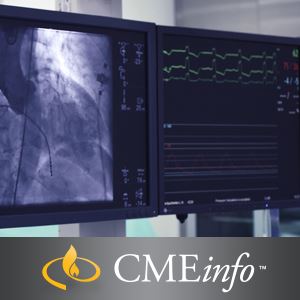
Product Title: UCSF Radiology – Interventional Review 2015 (CME Videos)
Format:
MP4, PDF,
Overview (Details, Topics and Speakers):
UCSF Radiology – Interventional Review
University of California San Francisco Clinical Update
Make the most of your time with this comprehensive interventional radiology CME program.
The UCSF Interventional Radiology Review program is designed to be a comprehensive review of both basic vascular and non-vascular interventional radiologic procedures, as well as emerging areas of interventional radiologic practice. This activity covers all common interventional radiologic procedures and focuses on indications, pre-procedural assessment, technical aspects of the procedure, as well as post-procedural follow-up.
This activity is now available online and on DVD video formats and should be suitable for radiologists actively practicing interventional radiology, and newly qualified interventional radiologists wanting to compare their knowledge and training with UCSF experts. This activity is focused primarily on body IR, rather than neuroradiological interventions.
- Aortic Stent Grafting – Timothy A.M. Chuter Jr., MD
- Pleural Interventions – Miles B. Conrad, MD
- Systemic Venous Interventions – Miles B. Conrad, MD
- Hepatic Chemoembolization – Nicholas Fidelman, MD
- Oncologic Interventions: Unknowns – Nicholas Fidelman, MD
- Radioembolization – Nicholas Fidelman, MD
- Abscess Drainage – Roy L. Gordon, MD
- Enteric Interventions – Roy L. Gordon, MD
- Urinary Tract – Roy L. Gordon, MD
- Radiation Safety for IR – Robert Gould, DSc
- Carotid Intervetions – Steven W. Hetts, MD
- Vertebroplasty – Steven W. Hetts, MD
- Arterial Interventions: Unknowns – Robert K. Kerlan Jr., MD
- Biliary Tract – Robert K. Kerlan Jr., MD
- Fibrinolytic Therapy – Robert K. Kerlan Jr., MD
- Management of Endoleaks Following EVAR – Robert K. Kerlan Jr., MD
- Portal Venous: Unknowns – Robert K. Kerlan Jr., MD
- Breast Interventions – Maureen P. Kohi, MD
- Computed Tomographic Angiography – Maureen P. Kohi, MD
- IVC Filters – Maureen P. Kohi, MD
- Systemic Venous Unknowns – Maureen P. Kohi, MD
- Uterine Fibroid Embolization – Maureen P. Kohi, MD
- Varicose Vein Management – Maureen P. Kohi, MD
- Percutaneous Ablation: Liver – K. Pallav Kolli, MD
- Pulmonary Artery Interventions – K. Pallav Kolli, MD
- Vascular Diagnosis: Unknowns – Set 1 – K. Pallav Kolli, MD
- Venous Interventions: Unknowns – K. Pallav Kolli, MD
- Portal Venous Hypertension – Jeanne M. LaBerge, MD
- TIPS and Portal Venous Interventions – Jeanne M. LaBerge, MD
- Vascular Disease Classification – Jeanne M. LaBerge, MD
- Percutaneous Ablation: Bone – Thomas M. Link, MD, PhD
- Arterial Interventions in Trauma – Sujal Nanavati, MD
- Venous Access – Sujal Nanavati, MD
- Coronary CTA: Findings and Pitfalls – Karen G. Ordovás, MD, MAS
- Coronary CTA: Technique and Indications – Karen G. Ordovás, MD, MAS
- Gastrointestinal Bleeding – Rajiv Sawhney, MD
- Renal Angio, PTA & Stents – Rajiv Sawhney, MD
- Arterial Interventions – Unknowns Set 1 – Richard Saxon , MD
- Arterial Interventions – Unknowns Set 2 – Richard Saxon , MD
- Peripheral PTA and Stents – Richard Saxon , MD
- Microcatheters and Selective Catheterization – Andrew G. Taylor, MD, PhD
- Percutaneous Ablation: Kidney – Andrew G. Taylor, MD, PhD
- Vascular Diagnosis: Unknowns – Set 2 – Andrew G. Taylor, MD, PhD
- Diaylsis Interventions – Mark W. Wilson, MD
- Magnetic Resonance Angiography – Mark W. Wilson, MD
- Non-Invasive Peripheral Vascular Exam – Mark W. Wilson, MD
Learning Objectives
After viewing this activity, participants will demonstrate the ability to:
- Describe the contemporary methods of vascular recanalization, and be familiar with the common devices for endoluminal therapies with the indications for their use and associated complications
- Recommend percutaneous methods of lower extremity therapy for varicose veins
- Select and use the appropriate embolic agents for treating hemorrhage secondary to trauma and gastrointestinal bleeding
- Recognize indications for percutaneous nephrostomy, percutaneous abscess drainage and percutaneous biliary drainage, and the techniques used
- Anticipate success rates of uterine fi broid embolization for menorrhagia, pelvic pain and urinary frequency
- Evaluate contraindications to percutaneous biopsy
- Distinguish between different devices used for percutaneous ablation of liver and kidney lesions
- Recommend the use of and contraindications to hepatic arterial chemoembolization and Y90 radioembolization
- Utilize appropriate imaging techniques such as CTA, MRA, coronary CTA and noninvasive arterial assessment
- Describe the current status or carotid artery interventions and vertebroplasty
Intended Audience
The course should be suitable for radiologists actively practicing interventional radiology, and newly qualified interventional radiologists wanting to compare their knowledge and training with UCSF experts. The course is focused primarily on body IR, rather than neuroradiological interventions.
Accreditation
The University of California, San Francisco School of Medicine (UCSF) is accredited by the Accreditation Council for Continuing Medical Education (ACCME) to provide continuing medical education for physicians.
Delivery Method
the UCSF Radiology – Interventional Review 2015 (CME Videos) course/book will be provided for customer as download link. download link has NO Expiry and can be used anytime.
Contact Us
contact us to our email at [email protected] or fill in the form below:

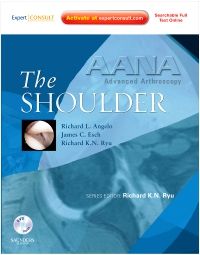
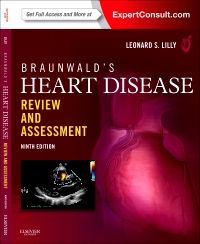
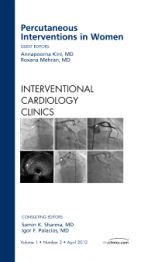
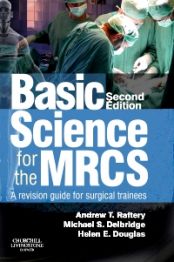
Reviews
There are no reviews yet.